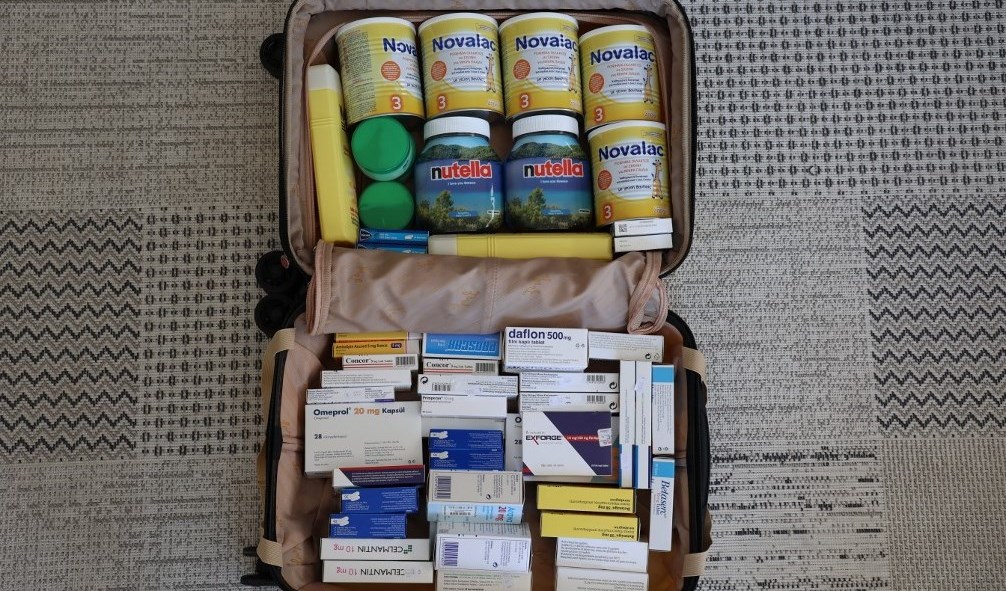Lebanese Families Spend 'Five Times Minimum Wage' on Food
According to food prices in the first half of July, the estimated minimum spending on food for a family of five in Lebanon is 3.5 million Lebanese Pounds, without taking into account the additional cost of water, electricity, or cooking gas.
-

Lebanese abroad are visiting Lebanon with luggage packed with food and medicine
In light of the worsening economic crisis, Lebanese families are spending five times the minimum wage solely on food, according to a study by the American University of Beirut. Meanwhile, the inflation rate keeps on rising as the national currency is devaluating.
Since the summer of 2019, Lebanon has been facing an unprecedented economic collapse, considered one the worst since the mid-19th century according to the World Bank. More than half the population is now under the poverty line, and the Lebanese Pound has lost more than 90% of its value against the dollar.
The Crisis Observatory at the American University of Beirut said that according to the latest prices in July, "A family's budget just for food is around five times the minimum wage," adding that the cost of food has soared by 700 percent over the past two years, and this increase had picked up pace in recent weeks. "The price of a basic food basket increased by more than 50 percent in less than a month," said Nasser Yassin, the head of the observatory.
The minimum wage in Lebanon is 675,000 Lebanese Pounds. This was once worth $450 at the official exchange rate; today, it can barely fetch $30 on the black market.
As the Central Bank's foreign reserves dry up, authorities have begun to ration subsidies or removing them altogether from key goods, such as flour, fuel, and medicine. Painkillers such as Panadol Advance now costs 16,000 LBP per box instead of 2,500 LBP.
The UN Children's Agency surveyed more than 1,200 households in April and found that 77 percent of them did not have enough food or money to buy food. Also, more than 30 percent of these families had at least one child who had skipped a meal or gone to bed hungry.
Despite the economic collapse, opposing political factions have not been able to form a government since the resignation of Hassan Diab's government last August, after the Beirut Port explosion. Nine months after he was designated, PM Hariri said last week he was unable to form a government due to severe political tensions.
President Michel Aoun called for parliamentary consultations next Monday for Parliamentary blocs to choose their new nominees to form the governmnet.

 3 Min Read
3 Min Read








